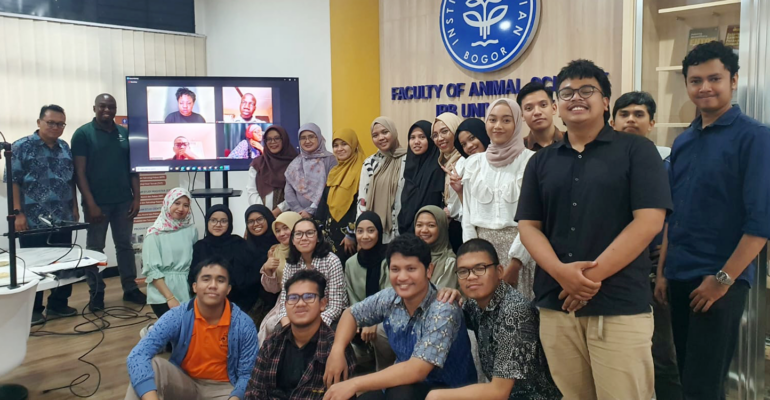Faculty of Animal Science IPB University Holds Mini Workshop on the Use of Multispectral Imaging Technology

Faculty of Animal Science (Fapet) IPB University held a Mini Workshop on the Use of Multispectral Imaging Feed Sample Technology at the Fapet Conference Room and Innovation Room, IPB Dramaga Campus (16/6). Dr Daniel Uyeh, a researcher and active lecturer at the Department of Biosystems and Agricultural Engineering, Michigan State University, USA acted as the presenter.
Dr Daniel, who visited Indonesia for the first time, said that the artificial intelligence in this system could predict the nutrient content of animal feed. In addition, multispectral imaging technology can also be used to detect contamination or adulteration of feed ingredients. This technology is certainly a new and interesting thing for dozens of students, participants of this mini workshop.
Dean of Fapet IPB University, Dr Idat Galih Permana said that this activity was a good opportunity for discussion. “For us, this is a new thing. Because, as far as we know, there is no industry that uses this technology to analyze and to be applied to quality control of animal feed,” he said.
“The Faculty of Animal Science of IPB University already has a Near-Infrared Spectrometry (NIRS) in the laboratory which is an instrumentation for rapid analysis of the nutrient content of feed ingredients. But currently it is still necessary to develop the database,” he continued.
The mini workshop was attended by the Vice Dean for Resources, Cooperation and Development of Fapet Dr Sri Suharti and moderated by Dr Windi Al Zahra. A number of participants consisting of Fapet IPB University students, ranging from undergraduate to postgraduate programs were active in discussion sessions, questions and answers and hybrid training with three students from Michigan.
Jafar Sumahta Munte, one of the mini workshop participants from the Livestock Production Technology Study Program, admitted that he could get to know masking again and get a color that represented a feed ingredient. “This program is very good because of the collaboration with foreign countries so it really helps us in Indonesia to know more about feed ingredients,” he said. (Femmy) (IAAS/TIR)



